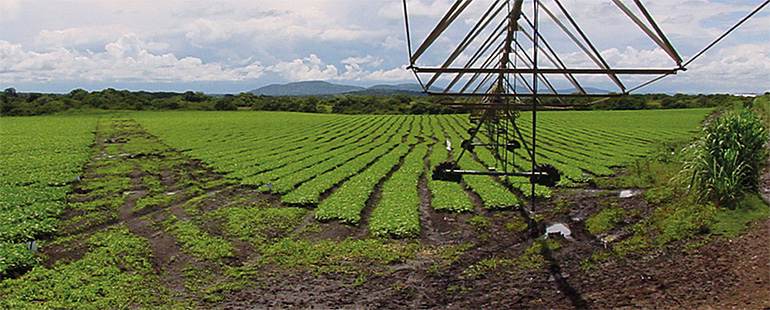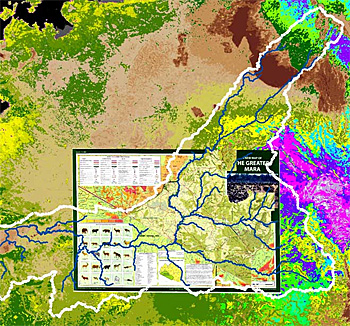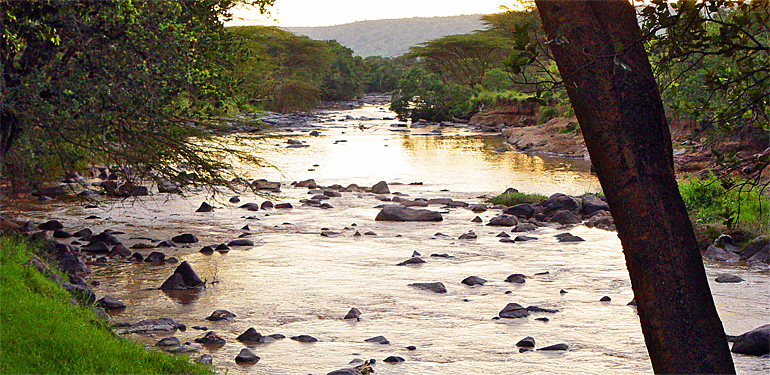Unesco-IHE leads public-private initiative to bring sustainable change in Mara river basin, Kenya

On the 10th of July, the Mau Mara Serengeti Sustainable Water Initiative was launched, a new public-private-partnership of Dutch, Kenyan and German partners to develop and conserve the Mara River Basin.
The four-year programme has a 10.7 million Euro budget, with 75% provided by The Netherlands Embassy in Kenya and 25% by HSBC Bank and the partners themselves.
Improving water safety and security
The Mau Mara Serengeti (MaMaSe) Sustainable Water Initiative will support interventions leading to more water wise and environmentally sustainable economic development, while preserving the ecosystems and wildlife of the famed Mara-Serengeti landscape.
Programme leader Michael McClain of Unesco-IHE is confident of achieving the common goal of improved water safety and security in the Mara river basin “thanks to the strength and experience of the partners involved, the priority given to change on the ground, and the spirit of cooperation with other actors in the basin".
Promoting self-reliance
Empowering the people of the basin and promoting self-reliance form the core principles of the initiative. Activities are being planned in close cooperation with local stakeholders to address the basin’s priority needs.
One of the identified priorities is capacity building of regional and community-based water authorities to improve integrated water resource management, a task that Unesco-IHE and the Regional Water Authority Brabantse Delta will pick up.
The CEO of the Kenyan Water Resource Management Authority (WMRA) Philip Olum looks forward to the "assistance of the experts in the WRMA programmes, such as the revision and development of catchment management strategies".
Furthermore, farmers in the headwaters of the basin are being helped to produce water wise and profitable products by SNV and Wageningen University and Research Centres.
 Open geospatial information system of the Maasai Mara park developed by ITC-University of Twente (ITC-UT) that can serve for development of rangeland management options and scenarios.
Open geospatial information system of the Maasai Mara park developed by ITC-University of Twente (ITC-UT) that can serve for development of rangeland management options and scenarios.
Support to local farmers
Key private sector partner Mara Farming Ltd connects local farmers to international markets, including major supermarket chains like Albert Heijn.
Also rangeland communities near conservation areas are supported by WWF Kenya to improve rangeland management and set up eco-tourism businesses.
ITC-University of Twente supports this effort with new satellite-based monitoring tools supplying relevant information.
Model for sustainable water resources management
To ensure a sustainable change in the Mara basin, innovative financing mechanisms for water resources management are being developed in cooperation with the German Agency for International Cooperation (GIZ).
The lessons learned and new decision-support tools developed by MaMaSe will be adapted for wider use by Egerton University, Masai Mara University, Unesco-IHE, ITC-University of Twente and Deltares. " Together with all partners and stakeholders we will make the Mara River Basin a model of sustainability for Kenya and the world" , McClain concludes.
Excellent example of new Dutch policy
The MaMaSe consortium is led by Dutch-based Unesco-IHE Institute for Water Education, in close cooperation with WWF Kenya, and includes a wide range of experts from government authorities, private sector, knowledge institutes and NGOs from Kenya, the Netherlands and Germany.
"This public-private partnership is an excellent example of the Dutch policy transition from aid to trade", Rose Makenzi from the Dutch embassy in Kenya explains, "and brings together a unique wealth of knowledge and expertise".
This news item was originally published on the website of Unesco-IHE.

More information
Unesco-IHE
Delft, the Netherlands
+31 15 212 29 21
www.unesco-ihe.org



